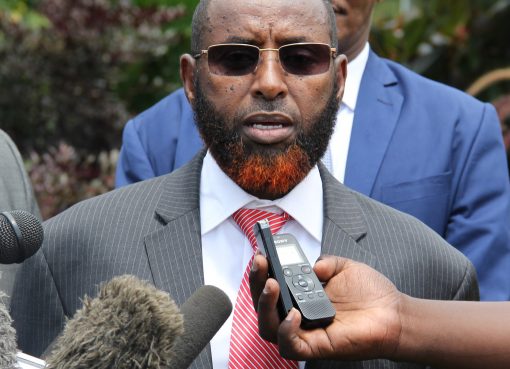About 450 fish farmers’ in Vihiga county will receive fingerlings and fish feeds this year, under the Norwegian Agency for Development Corporation (NORAD)- Advancing Resilient Nutrition Sensitivity Aquaculture ARNSA project.
Each farmer will receive 1000 fingerlings as well as eight bags of fish feeds. The type of fingerlings to be provided include monosex Tilapia and catfish.
The county executive for Agriculture, Livestock and Fisheries Nicholas Kitungulu, said 20 out 25 wards in the region were selected as the working areas for the project.
Kitungulu said the programme is meant to engage farmers, who will also be linked to the available markets.
The county executive said the five wards that had been left out of the NORAD-ARNSA project including Shiru in Hamisi sub-county, Luanda township (Luanda Sub County), Chavakali (Sabatia sub county), Mungoma (Vihiga Sub County) and Mwibona ward in Luanda sub county will be supported by the county government to ensure they also benefit.
He urged the beneficiary farmers to make use of the limited resources that they receive, saying the project will fully be sustained to enable them increase on their productivity.
At the same time, for this year’s season, the project has also accommodated secondary schools, where the first schools to be integrated include Nyang’ori boy’s and Moi Girls Vokoli high schools.
The County Project Coordinator, Wilson Munala, said they included the secondary schools this time round because they meet the basic criteria of having more than 1000 students to be part of the project, as well as being passionate about fish farming.
Munala said they were equally introducing a new system in learning facilities dubbed aquaculture for nutrition in schools.
He said the project aims at proving a concept by trying out new technologies, which other counties and other schools would learn from.
The coordinator said the school programme stands to take a new shift, as they are piloting a concept of integrating 3 projects in the same place.
This means fish, chicken and vegetables growing in a symbiotic environment, which increases diversity and yields multiple products, that will in the long run cut down on the costs of fertilizers and fish feeds, thus maximizing benefits.
Munala noted that raising chicken over the pond, so that the bird’s manure fertilizes the water helps plants to grow, thereby providing food for the fish.
The water that comes out of the fish pond will also be used for irrigating the vegetables, he added.
On his part, the Nyangori school principal Peter Lunani said they had embraced the project ostensibly to raise young farmers, who will have learnt aquaculture at a tender age.
He added that he school will also derive an additional income from the venture, besides serving as a learning point for the larger nearby community.
Lunani asserted that teachers in the school were very passionate about the project, and that they will ensure it succeeds, so as to serve as a good example to other schools and the entire community.
His Vokoli school counterpart, Hellen Mabese said the project was indeed part of learning and the students will be mentored to become excellent aquaculture farmers for posterity.
Mabese expressed gratitude to the NORAD- ARNSA project for considering her school, which is in the process of nurturing young girls to be future agri-business farmers.
On the other hand, the program fisheries technician Anyonyi Jonathan said they have since visited farmer’s ponds to provide personalized guidance including onboarding farmers and offering insights on clearing of bushy ponds, distilling of the ponds, drying them and filling the ponds with water for a new season.
He added that regular hands-on workshops will be organized covering various aspects of fish farming with a focus on practical demonstrations.
Jonathan said the exercise of distributing fingerlings will take place next month.
By Rose Wasike



